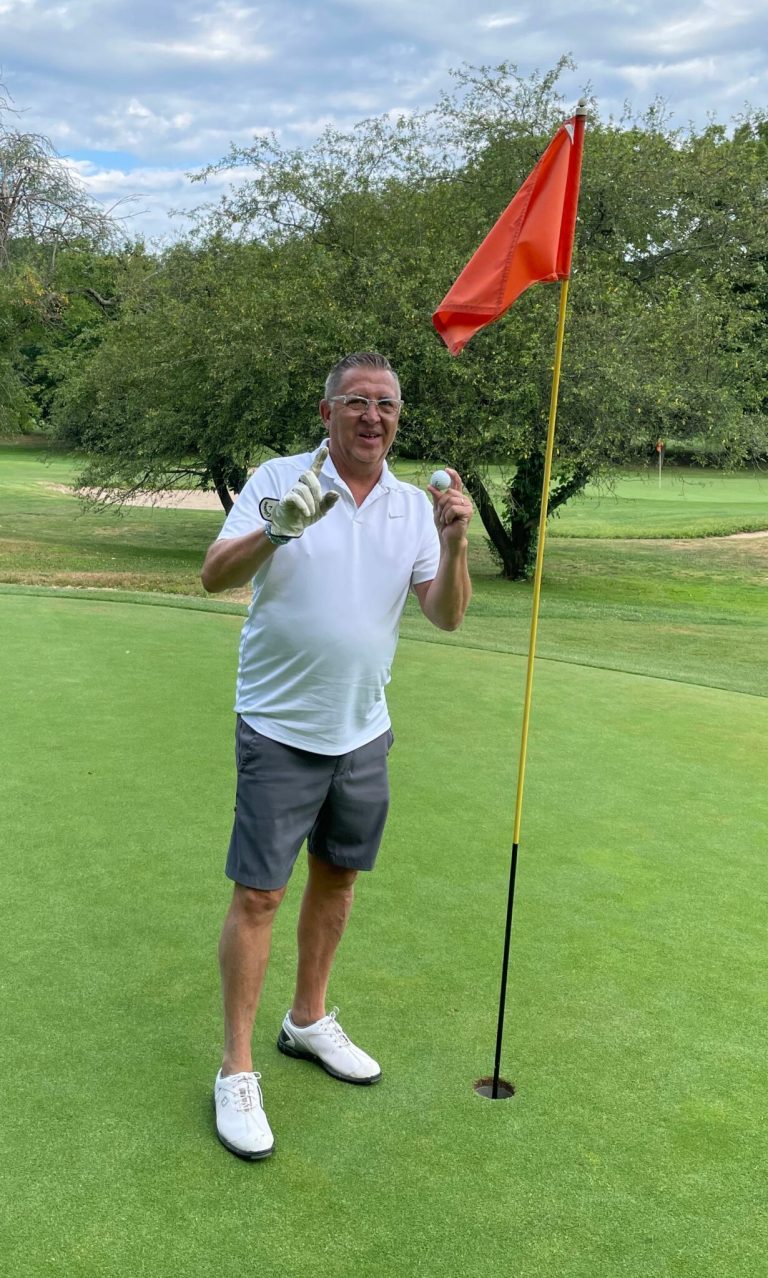
Kevin Kapela said he felt an immediate tightness in his chest and arms after his final drive on the ninth and final hole at Christopher Morley Golf Course in Roslyn in March.
The 64-year-old New Hyde Park resident said he attributed the pain to putting more muscle into his first shot at the 227-yard par 4 hole.
“I wasn’t keeping score,” Kapela said. “But I never lost my ball.”
But after experiencing shortness of breath, without a golf cart, Kapela made it back to his car and rushed over to the Sandra Atlas Heart Hospital at North Shore University Hospital.
Kapela’s quick judgment, good luck and a revolutionary treatment at the hospital would save his life. He would soon learn he was having a deadly heart attack, known as a “widowmaker.”
“If I wasn’t there, I don’t think I’d be standing here today,” Kapela told Blank Slate Media at a press conference held at North Shore Hospital to celebrate the life-saving treatment he received.
Kapela said he went from the greens to the green lights, hitting every single one to travel the 4 1/2 miles to the hospital in five minutes.
The emergency room doctors soon discovered he was suffering from a “widowmaker,” the informal term for a heart attack that involves a 100% blockage in the left anterior descending artery. The anterior descending artery is the largest one supplying blood to the heart, according to the University of Michigan.
Kapela, a grandfather of four who said has always lived a healthy lifestyle that currently includes pickleball and walking two miles a day, was one of the first patients in the hospital to receive a novel and revolutionary new treatment, TherOx.
“If I was anywhere else, I probably wouldn’t have acted so urgently,” Kapela said.
An hour-long therapy, TherOx was able to provide Kapela’s own super-oxygenated blood to his heart, helping prevent irreversible damage and lowering the chances of long-term heart failure, said Dr. Rajiv Jauhar, the chief of cardiology at the hospital.
“Instead of providing normal levels of oxygen in the bloodstream, the therapy was able to oversaturate it and give approximately five to seven times a regular amount of oxygen in his blood,” Jauhar said.
At the hospital, he was rushed in a wheelchair to cardiologists and a stent was inserted into his artery by Dr. Gaurav Rao.
“Mr. Kapela’s situation was very unique because of how quickly we were able to work on him,” Rao said. “By the time we were able to set our equipment up and insert the first stent, he was starting to feel back to normal almost immediately.”
After more treatment and another stent, Kapela was discharged and sent home from the hospital only two days later on March 23.
Kapela said he was extremely thankful to the hospital staff, which he said was like a “well-oiled machine.”
“It’s amazing the people that work here,” Kapela said. “I’m forever grateful.”






